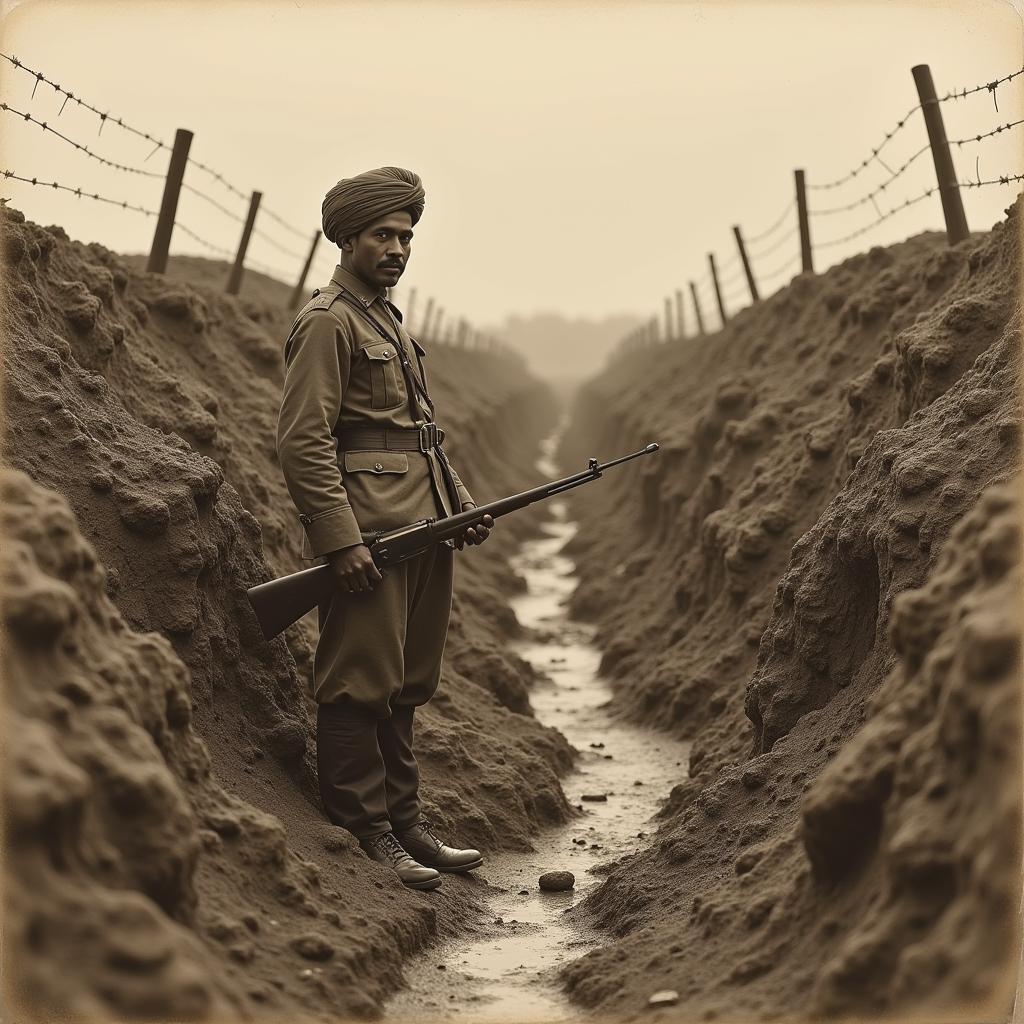1914-18 Indian vs African Troops: A Comparative Look at World War I Experiences
The First World War (1914-18) saw soldiers from across the globe drawn into a conflict of unprecedented scale and brutality. Among them were troops from India and Africa, fighting for their colonial powers, Britain and Germany respectively. This article delves into the experiences of these soldiers, highlighting their motivations, challenges, and contributions during the Great War.
Fighting for King and Colony: The Indian Sepoys
 Indian Sepoy on the Western Front
Indian Sepoy on the Western Front
Over 1.3 million Indian soldiers served in the British Indian Army during World War I, primarily on the Western Front, but also in East Africa, Mesopotamia, and the Middle East. Motivations for enlistment varied, from loyalty to the British Crown, economic incentives, and a sense of adventure to societal pressure and the allure of military prestige.
These soldiers, often referred to as “sepoys,” faced a multitude of hardships. The unfamiliar terrain and climate of Europe proved particularly challenging, with many succumbing to trench foot and diseases like influenza. They also grappled with cultural and linguistic barriers, as well as prejudice from some within the British ranks.
Despite these adversities, the Indian troops exhibited unwavering courage and resilience in battle. Their contributions at Ypres, Neuve Chapelle, and the Somme were crucial to the Allied war effort. The bravery and sacrifice of these soldiers is a testament to their dedication, even as they fought for a colonial power.
Defending the Homeland: The Askari of German East Africa
In contrast to the Indian experience, the majority of African soldiers in World War I fought within their own continent. German East Africa (present-day Tanzania, Rwanda, and Burundi) became a key battleground, with around 20,000 Askari (local African troops) defending German colonial holdings against British and Belgian forces.
The Askari, often recruited from specific ethnic groups known for their warrior traditions, were primarily motivated by loyalty to their German officers, economic necessity, and a desire for social advancement within the colonial hierarchy. However, they faced discrimination and were often relegated to support roles.
The East African campaign was a grueling guerilla war, characterized by long marches, scarce resources, and tropical diseases. The Askari’s knowledge of the terrain and their ability to adapt to the harsh conditions proved invaluable to the German war effort. Led by the charismatic General Paul von Lettow-Vorbeck, they tied down a much larger Allied force for the duration of the war.
Legacy and Remembrance
The experiences of Indian and African troops in World War I offer a unique perspective on the global impact of this conflict. Their stories highlight the complex relationship between colonialism, war, and individual agency.
While the contributions of Indian soldiers have been recognized to some extent in post-independence India, the role of African troops in World War I remains largely forgotten, both within Africa and internationally. It is imperative to acknowledge and commemorate the sacrifices of all soldiers who fought in this conflict, regardless of their origin or the side they fought for.
Conclusion
The 1914-18 war saw Indian and African troops fighting under different flags, facing unique challenges, and driven by a complex web of motivations. Their experiences offer a poignant reminder of the human cost of war, the enduring legacy of colonialism, and the importance of remembering and honoring the sacrifices of all those who served.
